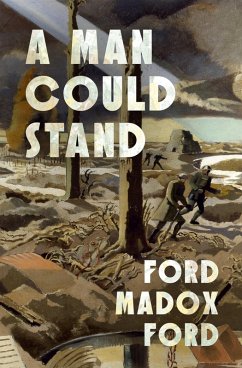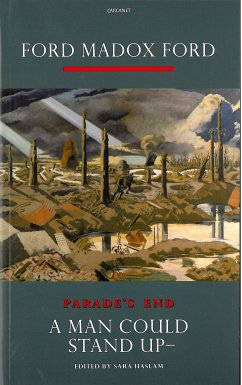
A Man Could Stand Up (eBook, ePUB)
Versandkostenfrei!
Sofort per Download lieferbar
0,49 €
inkl. MwSt.
Weitere Ausgaben:

PAYBACK Punkte
0 °P sammeln!
In "A Man Could Stand Up," Ford Madox Ford explores the intricate dynamics of personal relationships against the backdrop of a post-World War I society grappling with disillusionment. The novel is characterized by Ford's innovative narrative style, employing stream-of-consciousness techniques that delve into the inner thoughts and emotions of its characters. The story encapsulates the complexities of love, betrayal, and the societal changes of the early 20th century, offering readers a profound reflection on the human condition amidst a world in turmoil. Ford Madox Ford, an influential figure ...
In "A Man Could Stand Up," Ford Madox Ford explores the intricate dynamics of personal relationships against the backdrop of a post-World War I society grappling with disillusionment. The novel is characterized by Ford's innovative narrative style, employing stream-of-consciousness techniques that delve into the inner thoughts and emotions of its characters. The story encapsulates the complexities of love, betrayal, and the societal changes of the early 20th century, offering readers a profound reflection on the human condition amidst a world in turmoil. Ford Madox Ford, an influential figure in modernist literature, drew from his own experiences as a soldier and his rich literary background to craft this poignant narrative. His keen observations of human nature and societal shifts during the war profoundly shaped his writing. As a contemporary of notable literary figures, Ford's work often examined themes of identity and existential uncertainty, providing a fertile ground for the contemplative nature of this novel. Readers seeking a deeply reflective and psychologically intricate examination of relationships will find "A Man Could Stand Up" an invaluable addition to their literary repertoire. Ford's masterful prose and insightful characterization make this novel a compelling exploration of the struggles and resilience of the human spirit in a fractured world.
Dieser Download kann aus rechtlichen Gründen nur mit Rechnungsadresse in A, B, BG, CY, CZ, D, DK, EW, E, FIN, F, GR, H, IRL, I, LT, L, LR, M, NL, PL, P, R, S, SLO, SK ausgeliefert werden.













